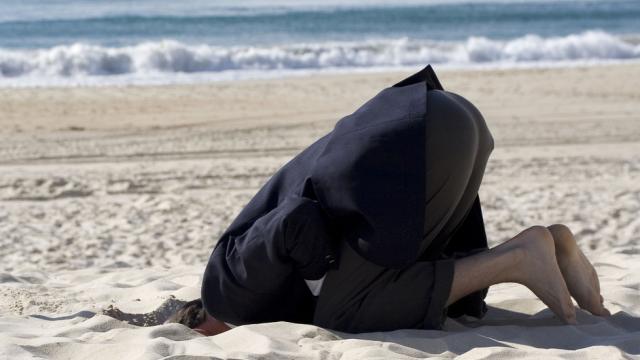
Florida's governor signed a law Monday night undermining accepted scientific theories about climate change, evolution and vaccination. The measure continues a trend in Florida and other conservative states where lawmakers are seeking to quash fact- and reason-based scientific consensus.
“It sows the seeds of doubt of what science is,” Brandon Haught, a Florida high school science teacher and the communications director of Florida Citizens for Science, told Occupy.com.
H.B. 989, the "instructional materials" bill that Gov. Rick Scott signed this week, follows a separate bill, S.B. 436, known as the "religious liberty" law, which also passed the Florida State Legislature and received Scott's approval earlier this month. The religious liberty law prohibits school officials from punishing students whose coursework contains “religious expressions.”
The sponsor of that bill, Florida State Sen. Dennis Baxley, is the former president of the Christian Coalition of Florida, a conservative political organization that seeks to “educate and mobilize Christians for effective political action.” Baxley contends the bill is designed to protect students’ religious beliefs, but critics fear it may enable teachers or students to deny evolution or climate change on the basis of religion.
“The threat is, if a school goes along with this, a teacher might be pressured and would confuse students,” Haught said.
The similarly patterned "instructional materials” law, which also goes into effect July 1, was shaped by the Florida Citizens Alliance Group, a conservative organization based in Naples, Fla. That district is represented by Rep. Byron Donalds, a sponsor of the bill.
In the group’s 11-page report outlining its objections to current state textbooks and curricula, it called a video about climate change “political indoctrination” and objected that the biblical account of the world's creation wasn't formally included in the lessons. Rep. Donalds did not respond to a request for an interview on the subject.
The instructional materials law allows any resident of a school district – not limited to parents – to petition the local school board for a hearing before a hearing officer whose qualifications aren't listed in the law, other than being “qualified,” “unbiased” and independent of the district school board. But school boards retain the authority to determine their school textbooks, which must conform to Florida educational standards – a contradiction that left many feeling confused and uncertain about the future of the law.
Teachers like Haught fear they could be pressured by principals to teach both evolution and creationism in science class, or fear losing their jobs. Tenure for Florida school teachers was eliminated in 2011.
Disputing accepted scientific consensus has already led to public health crises and environmental degradation. In June 2016, Miami school officials discovered an eight-year-old student was suffering symptoms of measles. Later tests confirmed the diagnosis. The child had not been vaccinated and had come into contact with up to 100 people.
Like the new mandates handed down by Scott Pruitt at the U.S. Environmental Protection Agency, Gov. Scott has reportedly instructedemployees of Florida's Department of Environmental Protection to avoid using the term climate change. In response to Scott’s long-standing refusal to accept the scientific consensus on global warming, 10 scientists from universities across the state signed a letter to the governor in 2014 stating that climate change "is already affecting the American people in far-reaching ways. This includes more frequent and/or intense extreme weather events, more acidic oceans, and rising sea levels.”
The letter stated "unambiguous evidence" that these changes are due to the burning of fossil fuels and widespread deforestation. Rising sea levels already threaten coastal communities like Miami with increased flooding, increased salt water intrusion into the drinking water supply, and damage to the agriculture and marine industries.
But Florida is hardly alone in its enactment of anti-science legislation. In 2008, Louisiana passed the euphemistically named Louisiana Science Act, which allows “alternative materials” to be taught in science classes.
In 2012, Tennessee passed a similar law. And earlier this year, the Idaho House and Senate education committees temporarily eliminated standards that referenced human activity as the cause of climate change, but those changes could become permanent after being revisited by the legislature in 2018.
3 WAYS TO SHOW YOUR SUPPORT
- Log in to post comments












